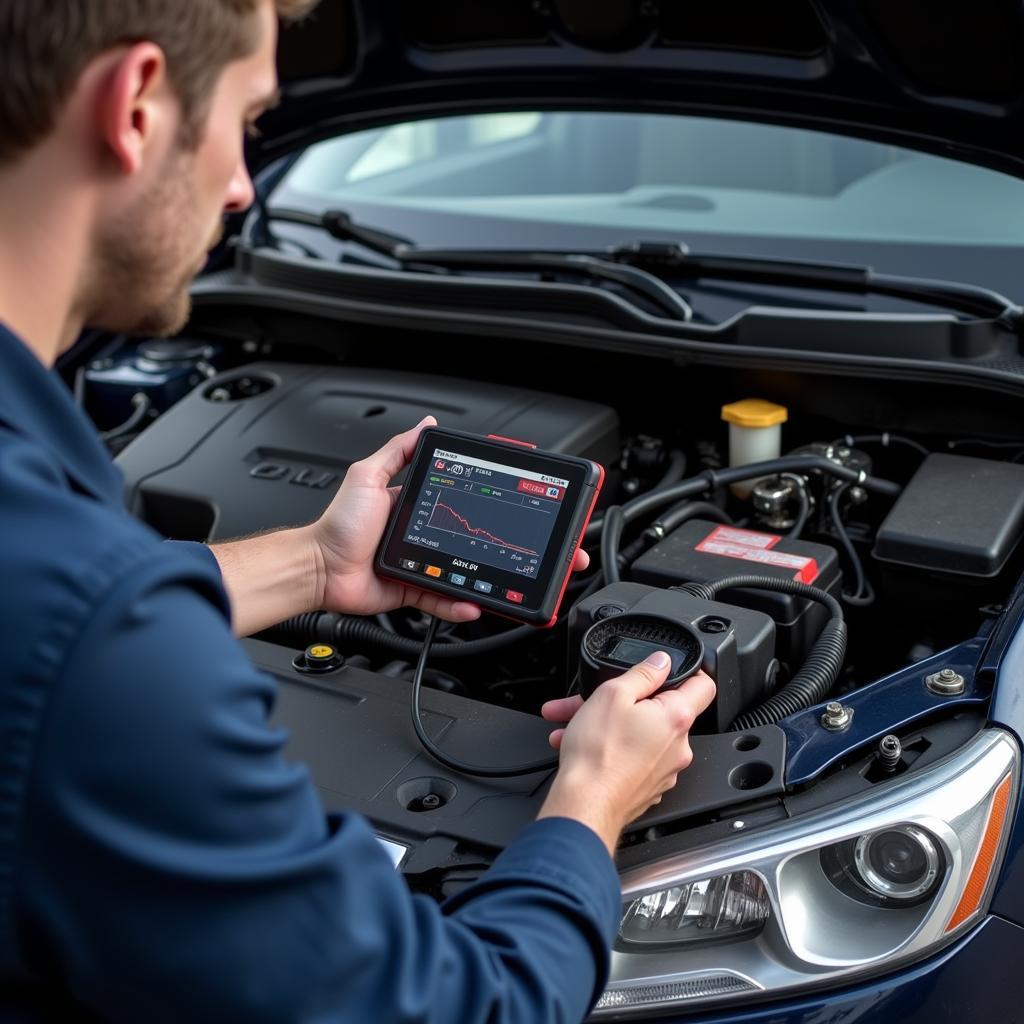Car problems. Those two words can send a shiver down any driver’s spine, whether you’re a seasoned mechanic or just trying to get from point A to point B. This guide provides expert advice on troubleshooting, maintenance, and understanding common car issues, empowering you to take control and keep your vehicle running smoothly.
Understanding Common Car Problems
From strange noises to warning lights, car problems manifest in various ways. Identifying the root cause is the first step towards a solution. Let’s delve into some common car problems and how to address them.
Engine Troubles: Diagnosing and Fixing Common Issues
Engine problems can range from minor annoyances to major breakdowns. A rough idle, decreased fuel efficiency, or unusual noises are all signs that something might be amiss.
- Check Engine Light: This dreaded light can indicate a range of issues, from a loose gas cap to a more serious engine malfunction. Use an OBD-II scanner to retrieve the specific error code and diagnose the problem.
- Overheating: Check your coolant levels and ensure the radiator fan is functioning correctly. Overheating can lead to severe engine damage, so address it promptly.
- Strange Noises: Knocking, ticking, or hissing sounds can indicate internal engine problems. Consult a qualified mechanic for a thorough diagnosis.
 Engine Troubleshooting Tips
Engine Troubleshooting Tips
Electrical System Malfunctions: Troubleshooting Tips
Electrical problems can be particularly challenging to diagnose. Intermittent issues, flickering lights, or a dead battery are common indicators.
- Battery Problems: Test your battery voltage to ensure it’s holding a charge. Corrosion on the terminals can also cause electrical issues.
- Alternator Issues: A faulty alternator can prevent the battery from charging properly. Have it tested by a professional if you suspect a problem.
- Fuse and Relay Problems: A blown fuse or a faulty relay can interrupt power to various systems. Check your owner’s manual for the location of the fuse box and relay panel.
Brake System Issues: Ensuring Safety and Reliability
Brake problems are critical safety concerns that should never be ignored. Squeaking brakes, a spongy brake pedal, or a pulling sensation while braking require immediate attention.
- Worn Brake Pads: Check your brake pads regularly for wear. Replacing them before they reach the wear limit can prevent damage to the rotors.
- Brake Fluid Leaks: Low brake fluid can significantly reduce braking performance. Inspect your brake lines for leaks and have them repaired immediately if necessary.
- ABS Issues: If your ABS light comes on, have the system diagnosed by a qualified mechanic. A malfunctioning ABS system can compromise your safety.
Car Maintenance: Preventative Measures for a Healthy Vehicle
Regular maintenance is crucial for preventing car problems and extending the life of your vehicle.
- Oil Changes: Follow the manufacturer’s recommended oil change intervals.
- Fluid Checks: Regularly check your coolant, brake fluid, power steering fluid, and transmission fluid levels.
- Tire Rotations and Pressure Checks: Proper tire maintenance ensures optimal handling and fuel efficiency.
“Regular maintenance is like brushing your teeth for your car. It prevents small problems from becoming big headaches,” says John Smith, ASE Certified Master Technician.
Conclusion: Keeping Your Car on the Road
Car problems are inevitable, but with the right knowledge and preventative maintenance, you can keep your vehicle running smoothly for years to come. Remember, addressing issues promptly and performing regular maintenance can save you time, money, and frustration in the long run. Need further assistance? Connect with us at Autotippro for personalized support at +1 (641) 206-8880. Our office is located at 500 N St Mary’s St, San Antonio, TX 78205, United States.
“Don’t wait until your car breaks down to start paying attention. Proactive maintenance is the key to a reliable and enjoyable driving experience,” adds Sarah Jones, Automotive Engineer at AutoTipPro.
FAQ
- What should I do if my check engine light comes on? Use an OBD-II scanner to retrieve the error code and diagnose the problem.
- How often should I change my oil? Follow the manufacturer’s recommended oil change intervals.
- What are signs of a failing alternator? Dimming headlights, flickering interior lights, and a dead battery are common signs.
- Why are my brakes squeaking? Worn brake pads are the most common cause of squeaking brakes.
- What should I do if my car overheats? Pull over to a safe location, turn off the engine, and let it cool down. Check the coolant level and add more if necessary.
- How can I improve my car’s fuel efficiency? Ensure proper tire inflation, regular maintenance, and avoid aggressive driving.
- What are some common car electrical problems? Dead battery, faulty alternator, blown fuses, and malfunctioning relays are common electrical issues.






Leave a Reply